
🗳️ Leopoldo López is building an alliance of democracy defenders – with the help of technology
Four years in solitary confinement did not break him. He continued to lead protests against the dictatorship in Venezuela. After being forced to flee the country, he now continues his work from abroad, building a democracy movement that threatens all dictatorships worldwide.
Share this story!
The first time I noticed Leopoldo López was when he stepped onto the stage at the Copenhagen Democracy Summit and delivered a speech about democracy and technology. When he stepped off the stage, I thought, "Have I just seen the first president of a free Venezuela?"
Some people have a sort of magnetic charisma, and Leopoldo López is one of them. It’s no wonder that both Hugo Chávez and Nicolás Maduro were afraid of him. Dictators become very scared when charismatic and fearless people dare to tell the truth about their oppression.
Leopoldo López was elected mayor of Chacao, a part of the megacity Caracas, in 2000. Almost immediately, he was seen as a threat, and accusations were directed at him. He was re-elected in 2004 but also received sanctions that prevented him from running for political office for the next six years after his term ended in 2008. The accusations were fabricated, as confirmed by the Inter-American Court of Human Rights, a ruling that Hugo Chávez ignored.
López did not give up but instead started a non-violent movement protesting against Chávez and his successor Maduro. Tens of thousands of people participated in the protests, which Maduro could not tolerate. López was thrown in military prison.
He spent four years in solitary confinement and was then moved to house arrest. When he again called for protests, they imprisoned him once more. After a while, when they allowed him back to house arrest, he escaped and was forced to flee Venezuela in 2020.
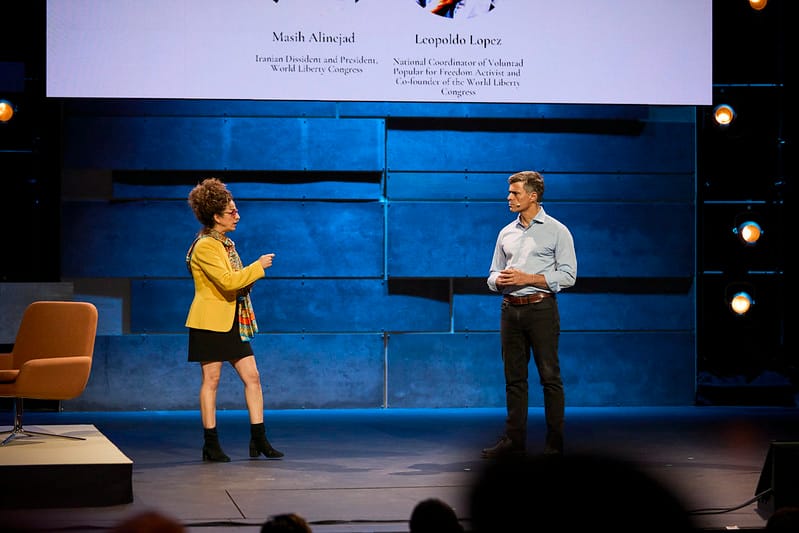
Now, he is building an organization that is not just a threat to the dictator Maduro but to all dictators around the world. Leopoldo López has started the World Liberty Congress, an alliance of democracy defenders from authoritarian countries.
At the latest Copenhagen Democracy Summit, I sat down with Leopoldo López to talk about the World Liberty Congress, democracy, and technology.
World Liberty Congress
"So, the World Liberty Congress is an alliance of democracy defenders from autocratic countries. So, that's the first distinction of many other initiatives that are out there that discuss democracy at a general level. But we believe that it's a very different approach, conversation, commitment to improve democracy when you have it, than to regain democracy when you don't have it."
"And we come from autocratic countries, and we have been able to attract delegates from 56 countries. We are also non-ideological in the sense that it's not about left, right, conservative, liberals. It's about just core values of democracy, respect to human rights, free and fair elections, rule of law."
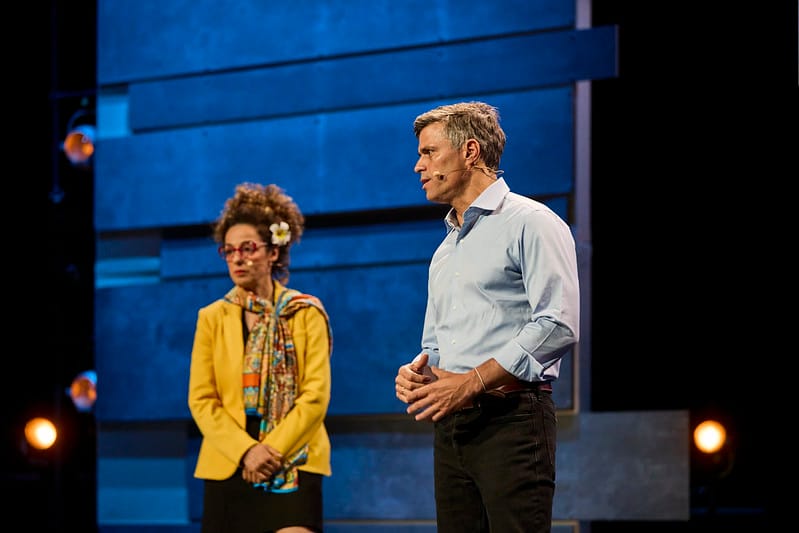
"We try to be action-oriented. So, we are not a think tank, we are not analyzing the problem. We want to do something about it, and we are committed to political change."
Crypto payments that bypass the corrupt state
You say you're action-oriented. How do you use technology in that, or how do you want to use it?
"We have been able to use technology very constructively. In the case of Venezuela, we were able to use cryptocurrency to provide direct support to medical doctors and nurses. We did it in a way that was compliant with the U.S. Treasury, and we got a license from OFAC. And we were able to provide a direct cash transfer to almost 70,000 medical doctors and nurses in a way that was very direct, very transparent, very immediate. And we have continued to provide support to tens of thousands of people every month in Venezuela, and we are looking to expand that."
This is a fascinating project where people from other parts of the world can send money directly to doctors and nurses to pay for the care their relatives receive. The reason they use cryptocurrency is that it is faster, avoids a 10-20 percent fee, and the corrupt Venezuelan state cannot seize or block the money.
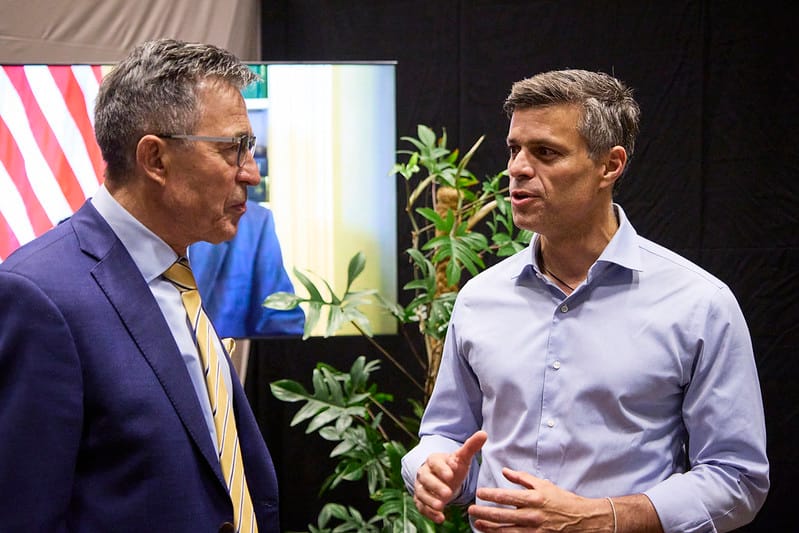
"But I think that when you have a conversation about technology and democracy, it's always very important to keep in mind that there is a basic infrastructure issue, which is access to Internet, that sometimes is undermined as being very obvious, because if you're here in Denmark or if you're in Silicon Valley in the West Coast, you're developing apps and apps, and more complex apps that require more bandwidth, that require more data processing, and you have that access here in Europe or in the U.S. But in countries like Venezuela, many of the African countries, many countries in Southeast Asia, you don't have basic access to Internet."
"So I think a commitment to access to Internet should be something that people who care about democracy and freedom worldwide come around. And the technology is out there. You have Starlink, the technology is out there."
"We are learning generative AI now"
Now with the wave of generative AI, ChatGPT and all these other tools to make images and videos and music and you name it. So what opportunities do you see there for people like yourself and for the Liberty Congress?
I think AI is a reality. It's here to stay, to evolve. Part of the conversation about AI, it's kind of a foolish, because it's just not going to change. You know some people, wants to stop it, to regulate it. I mean, I think that's not the right approach. I think this is a very powerful technology that came to change the world in a very significant way."
"And what I believe is that people should learn how to use it. So if you ask me, what are we doing about AI? We're learning how to use it."
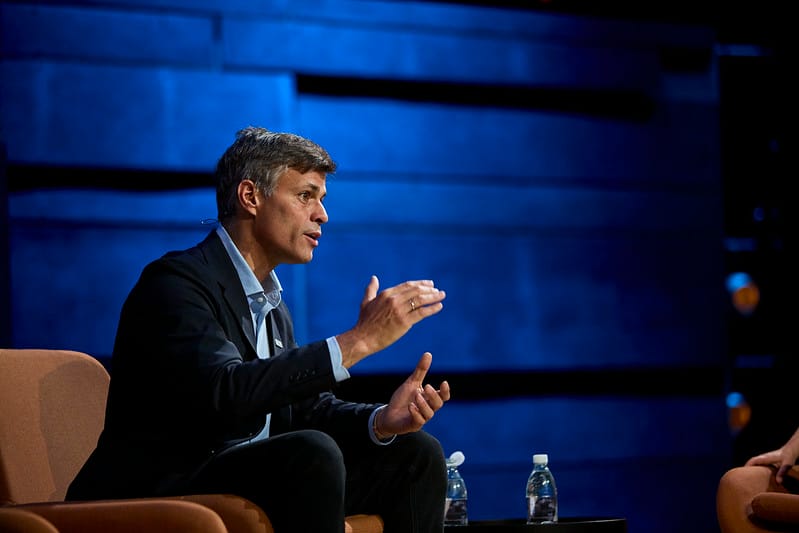
There is a lot of talk about how AI takes jobs or will take jobs. Leopoldo López has a different experience. He talks about an AI company that hired thousands of Venezuelans. They helped train an AI to understand images.
"You have a phone. You have a laptop. You have a cup. So they helped the AI to categorize a cup in many different ways. And this was providing a job opportunity to tens of thousands of people."
This is how you can help
Warp News is part of the Warp Institute, a nonprofit that I founded a few years ago. It's a global community of optimistic, forward-looking people with an edge toward technology.
What could people do to help you and other dissidents and especially the World Liberty Congress? You know, it could be something tiny or it could be something huge.
"I think to understand that supporting what we are doing is supporting freedom. And if you believe in freedom, you should support movements like our movements.
We need contacts. We need access. We need resources. We need technology."
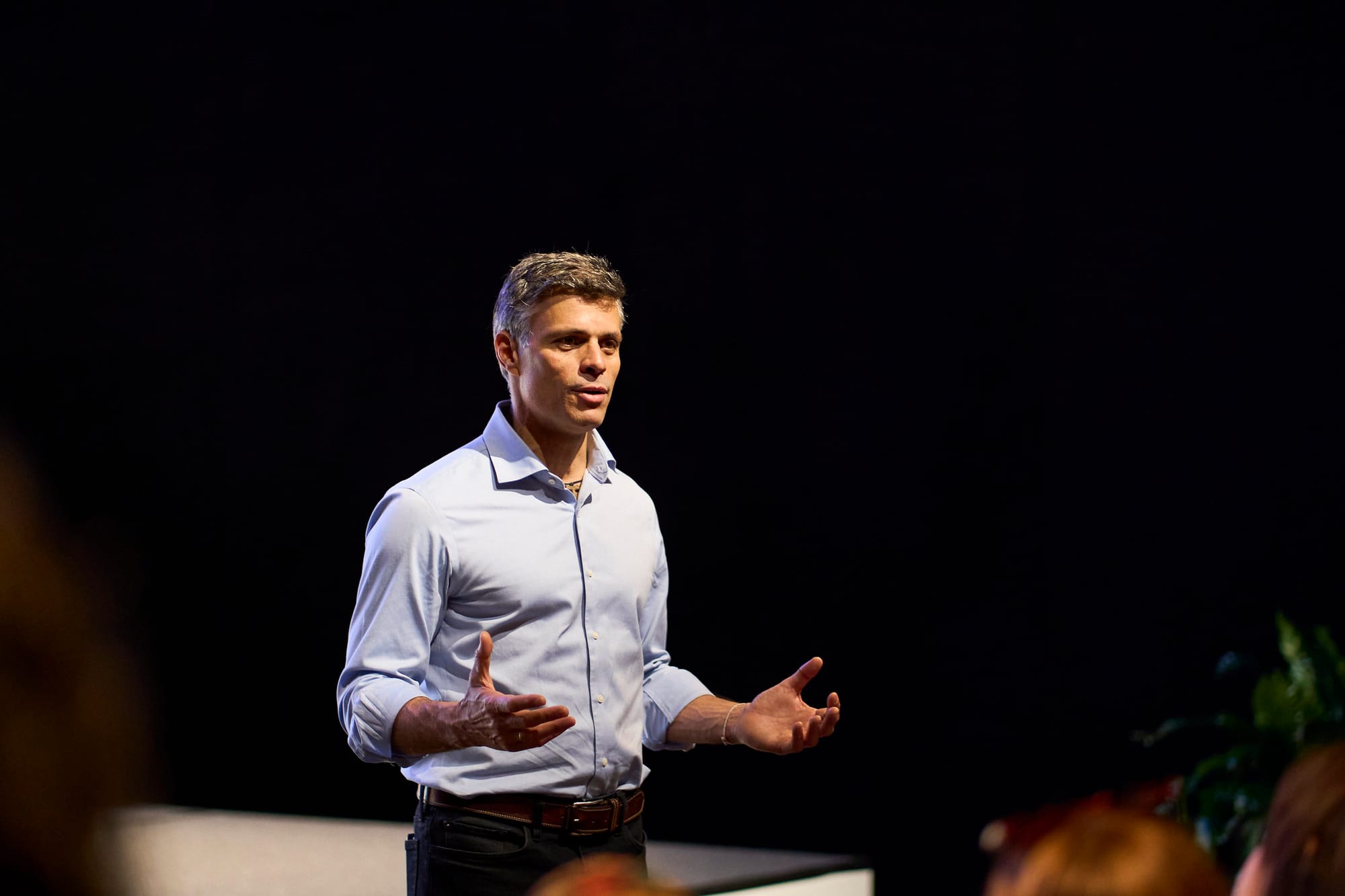
"If any of your readers are thinking about technological improvements or services that could provide support to pro-democracy movements, we can be the bridge between many of the movements around the world. If you ask me about any country in Africa, Latin America, Southeast Asia, if we don't have somebody in our network, we are two phone calls away or two emails away from having access to the right people that could help. So given that I'm sure your audience there are many people who are involved in issues around technology and democracy, we would like to present the World Liberty Congress platform as a go-to place."
If you want to get in touch with Leopoldo López, contact me, and I will connect you.
Mathias Sundin
The Angry Optimist
By becoming a premium supporter, you help in the creation and sharing of fact-based optimistic news all over the world.


